The average cost of Heart Double Valve Replacement in India approximately ranges between INR 748350 to 911324 (USD 9000 to USD 10960)
Heart double valve replacement surgery is a specialized surgery that is performed to replace both the damaged or diseased cardiac valve i.e. it's a cardiac surgery to replace both the aortic valve as well as the mitral valve. While performing the surgery, the damaged or diseased valve is replaced with a biological or synthetic valve, depending on the condition of the patient. This surgery is considered an incredibly complex procedure having symptoms such as breathlessness and chest pain. Narrowing of the valve or leakage of a valve is the reason why a patient asks for double valve replacement surgery as it restricts the flow of blood from both chambers of the heart.
The cardiac valve includes aortic, mitral, tricuspid, and pulmonic, and any of these valves may get damaged during a person’s lifetime for several reasons. Generally, Pulmonic and tricuspid valve are rarely replaced or repaired and mitral valve, on the other hand, often needs treatment.
The low cost of heart double valve replacement surgery in India starting from USD 9000 (approx.) is the major reason why hundreds of patients travel to India from all over the world. India, with the availability of the latest cardiac treatment technology and sophisticated catheterization labs, has secured the number one position in the list of countries with the best cardiac care. India has a strong brigade of skilled and experienced cardiac surgeons who have treated more than thousands of patients with double valve replacement.
| City | Minimum Cost | Maximum Cost |
|---|---|---|
| Kochi | USD 9640 | USD 10100 |
| Pune | USD 9800 | USD 10390 |
| Ghaziabad | USD 9220 | USD 10230 |
| Noida | USD 9070 | USD 10080 |
| Hyderabad | USD 9020 | USD 10660 |
| Bangalore | USD 9080 | USD 10570 |
| Faridabad | USD 9490 | USD 10510 |
| Country | Cost | Local_currency |
|---|---|---|
| Czechia | USD 45000 | Czechia 1021050 |
| Greece | USD 28000 | Greece 25760 |
| India | USD 9000 | |
| Israel | usd 9000 | |
| israel ">USD 65000 | Israel 247000 | |
| Poland | USD 15000 | Poland 60600 |
| South Korea | USD 70000 | South Korea 93988300 |
| Thailand | USD 50000 | Thailand 1782500 |
| Tunisia | USD 17000 | Tunisia 52870 |
| Turkey | USD 15000 | Turkey 452100 |
| United Arab Emirates | USD 45000 | United Arab Emirates 165150 |
Treatment cost
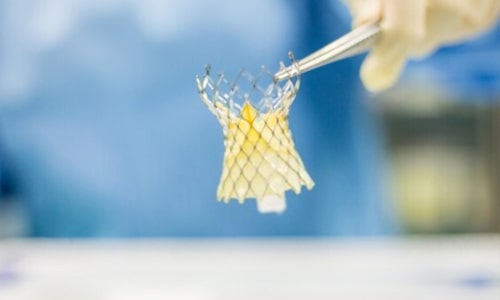
We provide numerous services for your medical journey, including:
With us, you are sure to receive all the benefits at competitive prices which is a better choice than paying actual hospital costs. The Double Valve Replacement Surgery involves replacement of both aortic and mitral valve. This type of replacement procedure is done under general anesthesia with both minimally invasive & conventional techniques. During conventional surgery, an incision is made in the neck right to the navel and for less invasive surgery, the incision is smaller thus leading to less infection., If you are thinking of Double Valve Replacement Surgery at Medicana Camlica Hospital in Turkey, then you must grab this beneficial package that covers every advantage for your treatment & stay.
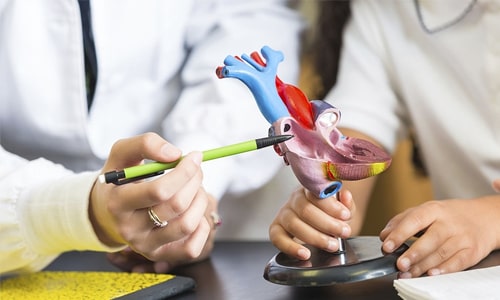
We provide numerous services for your medical journey, including:
We provide packages at economical prices with a number of additional benefits which make it a better opportunity than spending actual hospital costs with singular benefits. The Double Valve Replacement Surgery involves replacement of both aortic and mitral valve. This type of replacement procedure is done under general anesthesia with both minimally invasive & conventional techniques. During conventional surgery, an incision is made in the neck right to the navel and for less invasive surgery, the incision is smaller thus leading to less infection., If you are thinking of Double Valve Replacement Surgery at Sharda Hospital in India, then you must grab this beneficial package that covers every advantage for your treatment & stay.
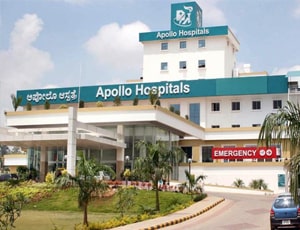
Types of Heart Double Valve Replacement in Apollo Hospitals Bannerghatta and its associated cost
| Treatment Option | Approximate Cost Range (USD) | Approximate Cost Range (INR) |
|---|---|---|
| Heart Double Valve Replacement (Overall) | 10126 - 17209 | 827140 - 1354076 |
| Simultaneous Double Valve Replacement (DVR) | 13201 - 22647 | 1121706 - 1861268 |
| Staged Double Valve Replacement (DVR) | 11286 - 20570 | 941215 - 1693913 |
DOCTORS IN 13 SPECIALITIES
FACILITIES & AMENITIES
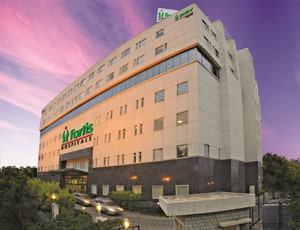
Types of Heart Double Valve Replacement in Fortis Hospital and its associated cost
| Treatment Option | Approximate Cost Range (USD) | Approximate Cost Range (INR) |
|---|---|---|
| Heart Double Valve Replacement (Overall) | 9094 - 15189 | 751622 - 1245755 |
| Simultaneous Double Valve Replacement (DVR) | 12165 - 20362 | 1001569 - 1663410 |
| Staged Double Valve Replacement (DVR) | 10125 - 18283 | 836035 - 1494279 |
DOCTORS IN 12 SPECIALITIES
FACILITIES & AMENITIES

Types of Heart Double Valve Replacement in Sarvodaya Hospital and Research Centre and its associated cost
| Treatment Option | Approximate Cost Range (USD) | Approximate Cost Range (INR) |
|---|---|---|
| Heart Double Valve Replacement (Overall) | 9093 - 15272 | 748169 - 1245071 |
| Simultaneous Double Valve Replacement (DVR) | 12185 - 20344 | 994273 - 1657374 |
| Staged Double Valve Replacement (DVR) | 10177 - 18195 | 831038 - 1493436 |
DOCTORS IN 14 SPECIALITIES
FACILITIES & AMENITIES

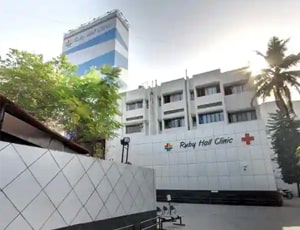
Types of Heart Double Valve Replacement in Ruby Hall Clinic and its associated cost
| Treatment Option | Approximate Cost Range (USD) | Approximate Cost Range (INR) |
|---|---|---|
| Heart Double Valve Replacement (Overall) | 8544 - 14155 | 694933 - 1160857 |
| Simultaneous Double Valve Replacement (DVR) | 11142 - 18834 | 923388 - 1524245 |
| Staged Double Valve Replacement (DVR) | 9417 - 16930 | 767686 - 1376046 |
DOCTORS IN 13 SPECIALITIES
FACILITIES & AMENITIES
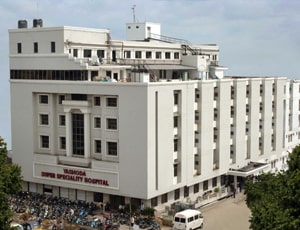
Types of Heart Double Valve Replacement in Yashoda Hospital, Malakpet and its associated cost
| Treatment Option | Approximate Cost Range (USD) | Approximate Cost Range (INR) |
|---|---|---|
| Heart Double Valve Replacement (Overall) | 9161 - 15152 | 752133 - 1244341 |
| Simultaneous Double Valve Replacement (DVR) | 12191 - 20320 | 1000151 - 1670032 |
| Staged Double Valve Replacement (DVR) | 10120 - 18254 | 836041 - 1496563 |
DOCTORS IN 10 SPECIALITIES
FACILITIES & AMENITIES
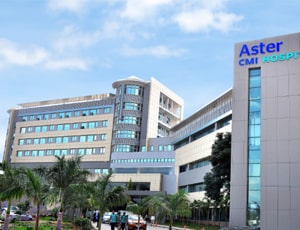
Types of Heart Double Valve Replacement in Aster CMI Hospital and its associated cost
| Treatment Option | Approximate Cost Range (USD) | Approximate Cost Range (INR) |
|---|---|---|
| Heart Double Valve Replacement (Overall) | 9139 - 15279 | 752171 - 1243131 |
| Simultaneous Double Valve Replacement (DVR) | 12131 - 20253 | 1003664 - 1657033 |
| Staged Double Valve Replacement (DVR) | 10162 - 18320 | 828488 - 1495088 |
DOCTORS IN 13 SPECIALITIES
FACILITIES & AMENITIES
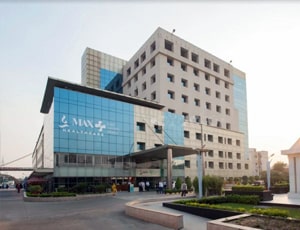
Types of Heart Double Valve Replacement & Its Cost at Max Super Specialty Hospital, Vaishali
| Treatment Option | Approximate Cost Range (USD) | Approximate Cost Range (INR) |
|---|---|---|
| Open-heart surgery | 6,000 - 7,500 | 492000 - 615000 |
| Minimally invasive surgery | 7,500 - 9,000 | 615000 - 738000 |
| Robotic-assisted surgery | 11,000 - 13,000 | 902000 - 1066000 |
Factors affecting Heart Double Valve Replacement cost in Max Super Specialty Hospital, Vaishali
| Cost Factors | Cost Range (USD) | Cost Range (INR) |
|---|---|---|
| Surgeon's fees | 2,000 - 2,500 | 164000 - 205000 |
| Anesthesia fees | 800 - 1,000 | 65600 - 82000 |
| Preoperative testing | 400 - 600 | 32800 - 49200 |
| Medical equipment and supplies | 1,200 - 1,500 | 98400 - 123000 |
| Operating room fees | 1,500 - 2,000 | 123000 - 164000 |
| Medications | 500 - 800 | 41000 - 65600 |
| Nursing care | 800 - 1,000 | 65600 - 82000 |
| Administrative fees | 400 - 600 | 32800 - 49200 |
| Type of Room Charges (Per day) | 200 - 300 | 16400 - 24600 |
| Follow-up Visits | 150 - 250 | 12300 - 20500 |
| Rehabilitation & postoperative care | 800 - 1,000 | 65600 - 82000 |
DOCTORS IN 14 SPECIALITIES
FACILITIES & AMENITIES
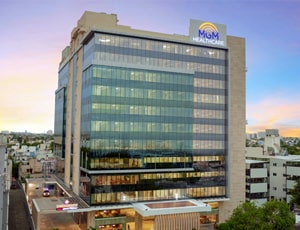
Types of Heart Double Valve Replacement in MGM Healthcare and its associated cost
| Treatment Option | Approximate Cost Range (USD) | Approximate Cost Range (INR) |
|---|---|---|
| Heart Double Valve Replacement (Overall) | 9109 - 15194 | 751707 - 1248327 |
| Simultaneous Double Valve Replacement (DVR) | 12204 - 20340 | 1001020 - 1663523 |
| Staged Double Valve Replacement (DVR) | 10109 - 18329 | 832955 - 1494044 |
DOCTORS IN 13 SPECIALITIES
FACILITIES & AMENITIES
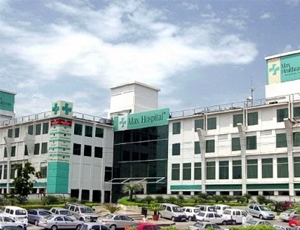
Types of Heart Double Valve Replacement & Its Cost at Max Hospital, Gurgaon
| Treatment Option | Approximate Cost Range (USD) | Approximate Cost Range (INR) |
|---|---|---|
| Open-heart surgery | 7,200 - 8,500 | 590400 - 697000 |
| Minimally invasive surgery | 8,500 - 9,800 | 697000 - 803600 |
| Robotic-assisted surgery | 11,800 - 13,200 | 967600 - 1082400 |
Factors affecting Heart Double Valve Replacement cost in Max Hospital, Gurgaon
| Cost Factors | Cost Range (USD) | Cost Range (INR) |
|---|---|---|
| Surgeon's fees | 3,000 - 3,500 | 246000 - 287000 |
| Anesthesia fees | 1,200 - 1,400 | 98400 - 114800 |
| Preoperative testing | 800 - 1,000 | 65600 - 82000 |
| Medical equipment and supplies | 1,800 - 2,200 | 147600 - 180400 |
| Operating room fees | 2,500 - 3,000 | 205000 - 246000 |
| Medications | 1,000 - 1,200 | 82000 - 98400 |
| Nursing care | 1,200 - 1,400 | 98400 - 114800 |
| Administrative fees | 800 - 1,000 | 65600 - 82000 |
| Type of Room Charges (Per day) | 400 - 500 | 32800 - 41000 |
| Follow-up Visits | 350 - 450 | 28700 - 36900 |
| Rehabilitation & postoperative care | 1,200 - 1,400 | 98400 - 114800 |
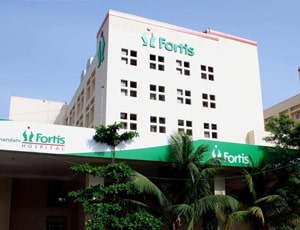
Types of Heart Double Valve Replacement in Fortis Hiranandani Hospital and its associated cost
| Treatment Option | Approximate Cost Range (USD) | Approximate Cost Range (INR) |
|---|---|---|
| Heart Double Valve Replacement (Overall) | 9173 - 15281 | 748106 - 1251647 |
| Simultaneous Double Valve Replacement (DVR) | 12127 - 20202 | 996104 - 1671537 |
| Staged Double Valve Replacement (DVR) | 10125 - 18343 | 833445 - 1492288 |
DOCTORS IN 13 SPECIALITIES
FACILITIES & AMENITIES
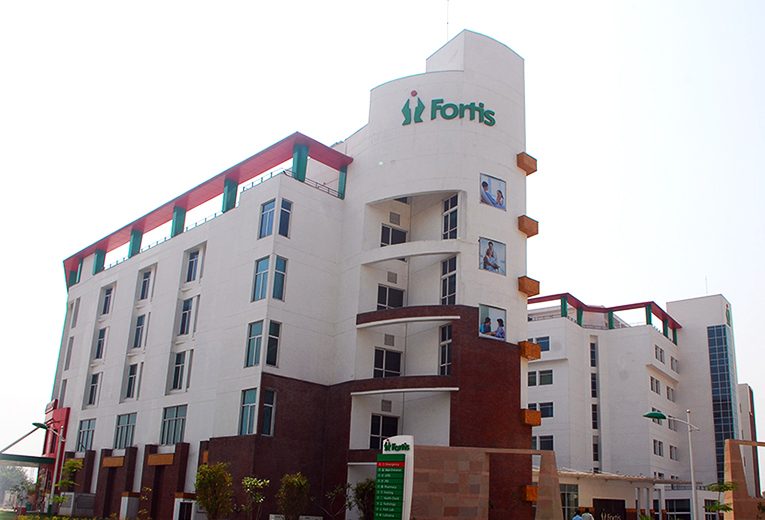
Types of Heart Double Valve Replacement & Its Cost at Fortis Hospital, Shalimar Bagh
| Treatment Option | Approximate Cost Range (USD) | Approximate Cost Range (INR) |
|---|---|---|
| Open-heart surgery | 5,500 - 6,800 | 451000 - 557600 |
| Minimally invasive surgery | 6,800 - 8,000 | 557600 - 656000 |
| Robotic-assisted surgery | 8,500 - 10,000 | 697000 - 820000 |
Factors affecting Heart Double Valve Replacement cost in Fortis Hospital, Shalimar Bagh
| Cost Factors | Cost Range (USD) | Cost Range (INR) |
|---|---|---|
| Surgeon's fees | 2,000 - 2,500 | 164000 - 205000 |
| Anesthesia fees | 900 - 1,100 | 73800 - 90200 |
| Preoperative testing | 500 - 700 | 41000 - 57400 |
| Medical equipment and supplies | 1,200 - 1,500 | 98400 - 123000 |
| Operating room fees | 1,600 - 2,000 | 131200 - 164000 |
| Medications | 700 - 900 | 57400 - 73800 |
| Nursing care | 900 - 1,100 | 73800 - 90200 |
| Administrative fees | 500 - 700 | 41000 - 57400 |
| Type of Room Charges (Per day) | 250 - 350 | 20500 - 28700 |
| Follow-up Visits | 200 - 300 | 16400 - 24600 |
| Rehabilitation & postoperative care | 900 - 1,100 | 73800 - 90200 |
DOCTORS IN 14 SPECIALITIES
FACILITIES & AMENITIES
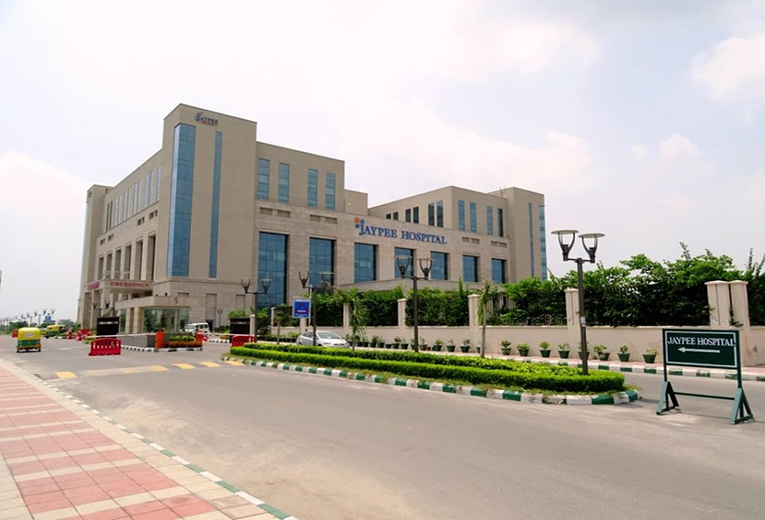
Types of Heart Double Valve Replacement & Its Cost at Jaypee Hospital
| Treatment Option | Approximate Cost Range (USD) | Approximate Cost Range (INR) |
|---|---|---|
| Open-heart surgery | 6,500 - 7,800 | 533000 - 639600 |
| Minimally invasive surgery | 7,800 - 9,100 | 639600 - 746200 |
| Robotic-assisted surgery | 10,200 - 11,500 | 836400 - 943000 |
Factors affecting Heart Double Valve Replacement cost in Jaypee Hospital
| Cost Factors | Cost Range (USD) | Cost Range (INR) |
|---|---|---|
| Surgeon's fees | 2,800 - 3,300 | 229600 - 270600 |
| Anesthesia fees | 1,100 - 1,300 | 90200 - 106600 |
| Preoperative testing | 700 - 900 | 57400 - 73800 |
| Medical equipment and supplies | 1,500 - 1,800 | 123000 - 147600 |
| Operating room fees | 2,000 - 2,500 | 164000 - 205000 |
| Medications | 900 - 1,100 | 73800 - 90200 |
| Nursing care | 1,100 - 1,300 | 90200 - 106600 |
| Administrative fees | 700 - 900 | 57400 - 73800 |
| Type of Room Charges (Per day) | 350 - 450 | 28700 - 36900 |
| Follow-up Visits | 300 - 400 | 24600 - 32800 |
| Rehabilitation & postoperative care | 1,100 - 1,300 | 90200 - 106600 |
DOCTORS IN 14 SPECIALITIES
FACILITIES & AMENITIES
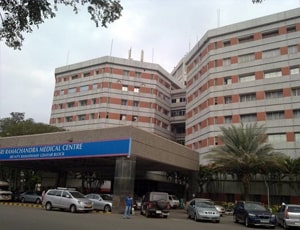
Types of Heart Double Valve Replacement in Sri Ramachandra Medical Centre and its associated cost
| Treatment Option | Approximate Cost Range (USD) | Approximate Cost Range (INR) |
|---|---|---|
| Heart Double Valve Replacement (Overall) | 9176 - 15230 | 748808 - 1254156 |
| Simultaneous Double Valve Replacement (DVR) | 12159 - 20337 | 997788 - 1665872 |
| Staged Double Valve Replacement (DVR) | 10155 - 18279 | 835122 - 1504554 |
DOCTORS IN 10 SPECIALITIES
FACILITIES & AMENITIES
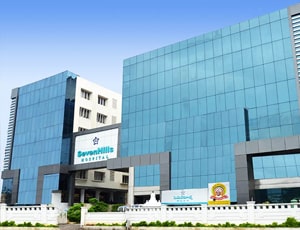
Types of Heart Double Valve Replacement in Seven Hills Hospital and its associated cost
| Treatment Option | Approximate Cost Range (USD) | Approximate Cost Range (INR) |
|---|---|---|
| Heart Double Valve Replacement (Overall) | 10042 - 16834 | 848207 - 1369462 |
| Simultaneous Double Valve Replacement (DVR) | 13799 - 22495 | 1103002 - 1849481 |
| Staged Double Valve Replacement (DVR) | 11010 - 20442 | 926659 - 1630845 |
DOCTORS IN 11 SPECIALITIES
FACILITIES & AMENITIES
The cost for Heart Double Valve Replacement ranges from USD 9260 - 10740 in Aakash Healthcare Super Speciality Hospital
Aakash Healthcare Super Speciality Hospital located in New Delhi, India is accredited by NABH. Also listed below are some of the most prominent infrastructural details:
DOCTORS IN 13 SPECIALITIES
FACILITIES & AMENITIES
Double valve surgery is described as a surgical procedure where two heart valves are repaired or replaced during the same operation. The heart has four valves—two atrioventricular valves (mitral and tricuspid) and two semilunar valves (aortic and pulmonary). These valves play a crucial role in ensuring blood flows in the correct direction through the heart. The heart valves play a crucial role in allowing nutrient-rich blood to flow through the heart's chambers. Ideally, each valve should close completely after guiding blood flow. However, when heart valves are diseased, they may not function properly.
Double valve surgery becomes necessary when both the aortic and mitral valves or both the mitral and tricuspid valves are affected by disease or dysfunction. The reasons for double valve surgery include:
Stenosis, which is the narrowing of blood vessels, reduces the normal blood flow to the heart, making the muscle work harder. Leaky valves, known as regurgitation, occur when a valve doesn't close tightly, allowing blood to flow backward. This can lead to symptoms of valvular heart disease, including fatigue, dizziness, lightheadedness, shortness of breath, cyanosis, chest pain, and fluid retention, especially in the lower limbs.
Heart valve repair is an option for treating valvular heart disease, but in some cases where the damage is severe, a total replacement of the affected valve may be the only solution.
Mechanical Valves: These are artificial components made from materials like carbon and polyester, well-tolerated by the human body. They serve the same purpose as natural heart valves and have a lifespan of 10 to 20 years. However, a drawback is the risk of blood clots. If you get a mechanical heart valve, you'll need to take blood thinners for life to reduce the risk of stroke.
Biologic Valves (Bioprosthetic Valves): These valves are crafted from human or animal tissue. There are three types:
Heart double-valve replacement surgery is conducted under general anesthesia, using either conventional or minimally invasive techniques. In conventional surgery, a sizable incision is made from your neck to your navel. Opting for less invasive surgery can result in a shorter incision, reducing the risk of infection.
To replace a diseased valve successfully, the surgeon requires your heart to be still. This involves placing you on a bypass machine, ensuring blood circulation and lung function during the procedure. Incisions are made into your aorta through which the faulty valves are removed and replaced with new ones. While valve replacement surgery is generally safe, there is a nearly 2 percent risk of mortality associated with the procedure.
Post-surgery, the patient is shifted to the ICU for close monitoring for several days. Blood pressure, ECG tracing, breathing rate, and oxygen levels are closely studied. You may require staying in the hospital for several days after heart valve replacement surgery. With the help of the ventilator, breathing is assisted via a tube inserted in the throat. The breathing machine will be further adjusted as the patient keeps growing stable and once the patient can breathe and cough on their own, the tube is removed.
Along with this, the stomach tube is also removed. Every two hours, a nurse would help the patient take deep breaths and cough. This feels sore but is vital to prevent the accumulation of mucus in the lungs and prevent pneumonia. The patient is taught to hug a pillow tightly while coughing to ease out any discomfort. The patient must express discomfort felt at coughing and medications are suggested accordingly. Slowly fluid intake is initiated and you can gradually increase your daily activities such as walking around the room. After a few days, the patient is shifted to the recovery room where the rest of the recovery takes place before discharge.
You can notify your doctor if you feel swelling and redness around the incision area, fevers, chills, or pain in the area of the incision. You should rest and keep the surgical area as clean as possible at home.
Ask your healthcare adviser for the best multiple options and choose the one that meets your expectations
Heart double valve replacement surgery is recommended for patients experiencing severe conditions and signs of valve dysfunction. In India, Rheumatic Heart Disease is the primary cause of valve problems. The procedure of heart valve surgery is common and performed in major multispecialty hospitals. India is globally renowned for its quality approach to cardiac care, featuring highly trained and experienced cardiac surgeons.
The success rate of heart valve replacement surgery in India is high compared to Western countries, assuring patients of a healthy life post-surgery. India's top hospitals are known for their genuine service and around-the-clock availability, with English-speaking staff and state-of-the-art rehabilitation facilities. This makes the country the most preferred destination worldwide, where thousands of patients with aortic valve stenosis can quickly return to their normal lives.
The average cost of heart double valve replacement surgery in India starts at $9,500. Undoubtedly India offers the most efficient and pocket-friendly treatment for heart valve surgery in comparison to other western countries. The point which is worth mentioning is that the cost can vary as per the diagnosis, condition of the patients, the hospital you have chosen, types of rooms along with the facility availed, and expertise of the surgeon.
While any minor problems do not affect that much and do not ask for surgery but mild ones need treatment with the help of heart valve repair surgery. Majority of people are living their life normally after having heart valve replacement surgery in India. The high success rate of procedure performed in India shows how successfully a patient is able to recover after the surgery.
After the surgery, the patient is usually advised to take a few medications for a few weeks. It should be noted that the duration of the medication could be reduced or lifted altogether depending on the condition and status of recovery of the patients. The patients should visit the doctor according to the schedule of follow up. During follow up visit, the doctor may perform a few tests to check for the healing of the tissue and then he would observe the functioning of the new valve. The recommended hospitals in India ensure a speedy recovery process by helping patients to return back to their normal routine.
In the past few decades, India has seen remarkable growth in the healthcare industry and boasts a volume of its excellent maintained healthcare providers who are renowned for carrying out the procedure of heart valve replacement surgery with brilliance. Here is the list of some recommended hospitals in India for surgery:
India has a pool of qualified cardiac surgeons, working across some of the trusted hospitals in India. Having been trained in top medical institutes in India and abroad, Cardiologists in India hold thorough knowledge in cardiology and cardiac science. See the top Cardiologist in India for heart double valve replacement surgery:
Heart double valve replacement surgery cost in India depends on several factors. Some of these factors include the following:
The following two types of valves are used in India for heart valve replacement surgery:
Prosthetic Valve: It is also known as an artificial or mechanical valve. Mechanical valves are most commonly made of pyrolytic carbon. They are expected to last longer than biological valve and there is less risk of another surgery after a few years because it does not wear out that fast. There is a greater need for using blood-thinners in the case of mechanical valves.
Tissue Valve: It is also known as a biological, bovine valve, or bioprosthetic valve. This type of valve is derived from a pig’s heart and the sac around a cow’s heart. It costs more than a mechanical valve. Patients who get a biological valve have less need to take blood-thinning medicines and are able to recover faster as far as the valve’s functioning is concerned.